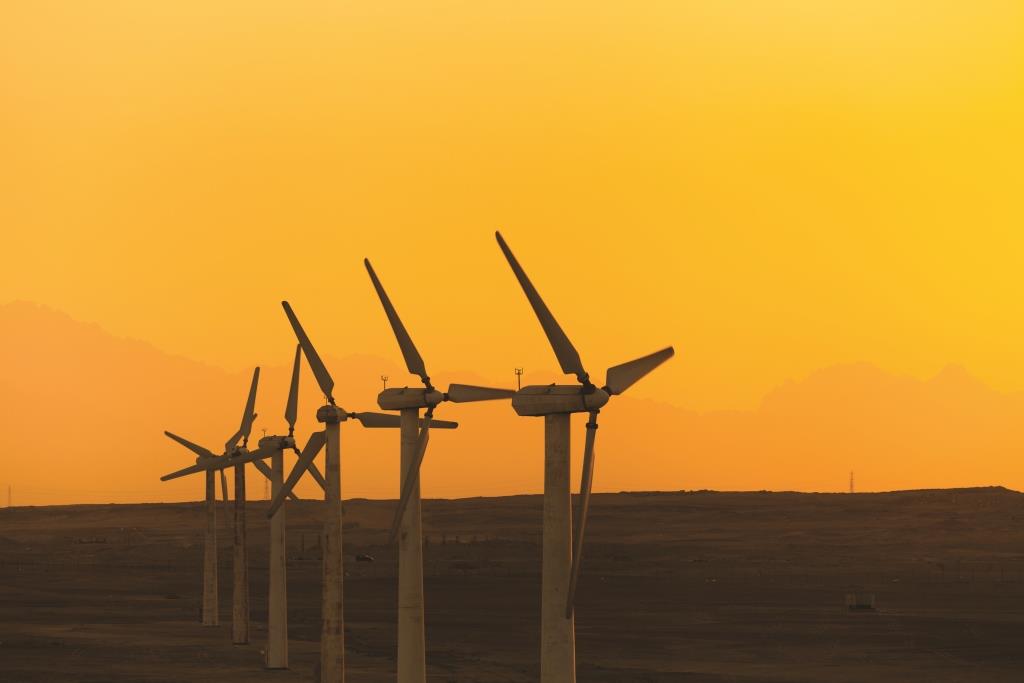Engineer Hein Reyneke should be very pleased with life right now. He has overseen the building of two mighty wind farms ready to feed clean, green energy into his country’s national grid. The windfarm at Paardekraal, in the Karoo in South Africa’s Western Cape, will generate 110MW; at Kangnas, near Springbok in the Northern Cape, will generate 140MW; two shining power projects that took millions and the best part of seven years to build.
Instead, Reyneke is frustrated. His company, Mainstream Renewable Power, is one of the 37 renewable power projects left in the lurch by Africa’s biggest electricity generator Eskom. Between them they have sunk more than R50 billion (about $ 3.8 billion) into the projects left in limbo for more than two years.
The worst part is that all 37 projects have been signed off by the South African government’s enormous Renewable Energy Independent Power Producer Procurement Programme (REIPPP).
The problem is that Eskom won’t sign the 20-year power purchase agreements that will connect the projects to the national grid and pay their owners for the electricity they generate. Even then, it’ll take these 37 renewable power projects years to recoup their investment. The renewable energy entrepreneurs share the view of many in the industry that Eskom is both referee and player in the power game that guards its turf.
“I think the problem is Eskom can see its role diminishing. In short, it doesn’t want other people selling bread in its bakery,” says Reyneke.
Loading...
The reality is Eskom can afford to take its time over signing new power agreements. The blackouts that have plagued South Africa since 2008 have receded. This is down to a combination of a massive repair and maintenance operation, the coming online of two new coal-fired power stations, and falling demand due to a sluggish economy. All this has left the national grid with a healthy surplus that could be as high as 5,600MW at peak times. That is nearly twice the output of one of South Africa’s biggest coal-fired stations.
It means Eskom can also afford be picky over price. Renewable energy may be gentle on the environment, but it is expensive to produce. In the first three rounds of the REIPPP process, Eskom was prepared to pay more than a rand per kWh. Now Eskom says it does not want to pay any more than 62 cents per kWh.
“Let us first sign the 62c/kWh bids. We would sign 13 immediately. That would be a move in the right direction. Those that are more than 62c/kWh must sharpen their pencils,” says current interim CEO of Eskom, Matshele Koko.
“The South African Renewable Energy Council (SAREC) counters that apart from legality and the risk of far-reaching negative economic consequence, Mr. Koko does not appear to have thought through the direct power sector consequences of his position. A 62c/kWh ceiling for new generation would be a death knell for other independent power additions. Nuclear is expected to come in at least double this level. Recent coal bids were around R1.03/kWh. Eskom’s own new-build coal stations, Medupi and Kusile, are both well north of a rand per unit,” says SAREC in a statement.
SAREC, representing the owners of the 37 renewable power projects, sought legal opinion. It fears that foreign investors in the industry could be deterred by the impasse with Eskom and claims that the national power producer has no authority to negotiate tariffs with signed-off bidders.
Senior counsel at Webber Wentzel, in Johannesburg, has issued a legal opinion letter, which confirms that preferred bidders are entitled to approach a court to enforce Eskom’s signature of power purchase agreements.
“In our opinion Eskom cannot sidestep the binding determination of the Minister; they are bound by the Ministerial determination, which includes signing the power purchase agreements,” stated Advocate David Unterhalter, Senior Counsel at Webber Wentzel.
“As an origin of state, Eskom cannot raise the reservation of rights in the request for proposal to defeat a claim for substitutionary relief. Nor, can it refuse to conclude a power purchase agreement.”
So, the 37 renewable power producers could have a glorious day in court if they put up the money for the lawyers. The question is will they take on the giant Eskom that could tie them up in a long and expensive court case?
“I think it is an option but not our preference at the moment,” says Reyneke, of the windfarms of Paardekraal and Kangnas.
The bigger question for the South African government is how exactly it will replace coal – which currently generates around 90% of the country’s power – when the coalfields run out and the world demands fewer carbon emissions in the next decade or so. Nuclear is being touted as the answer, but that is likely to be crippling to government coffers.
It appears renewable energy – once seen as the saviour of the national grid and the environment – is on the backburner for now.
Loading...
